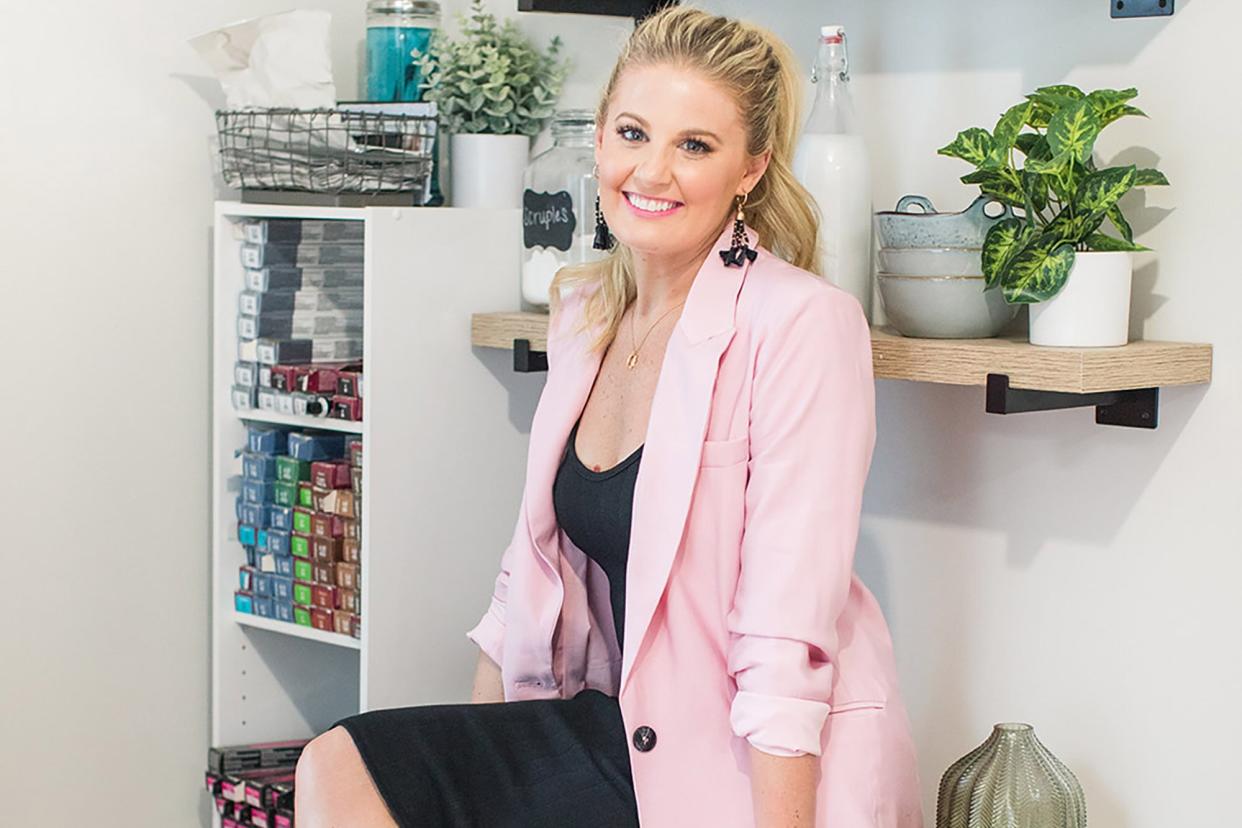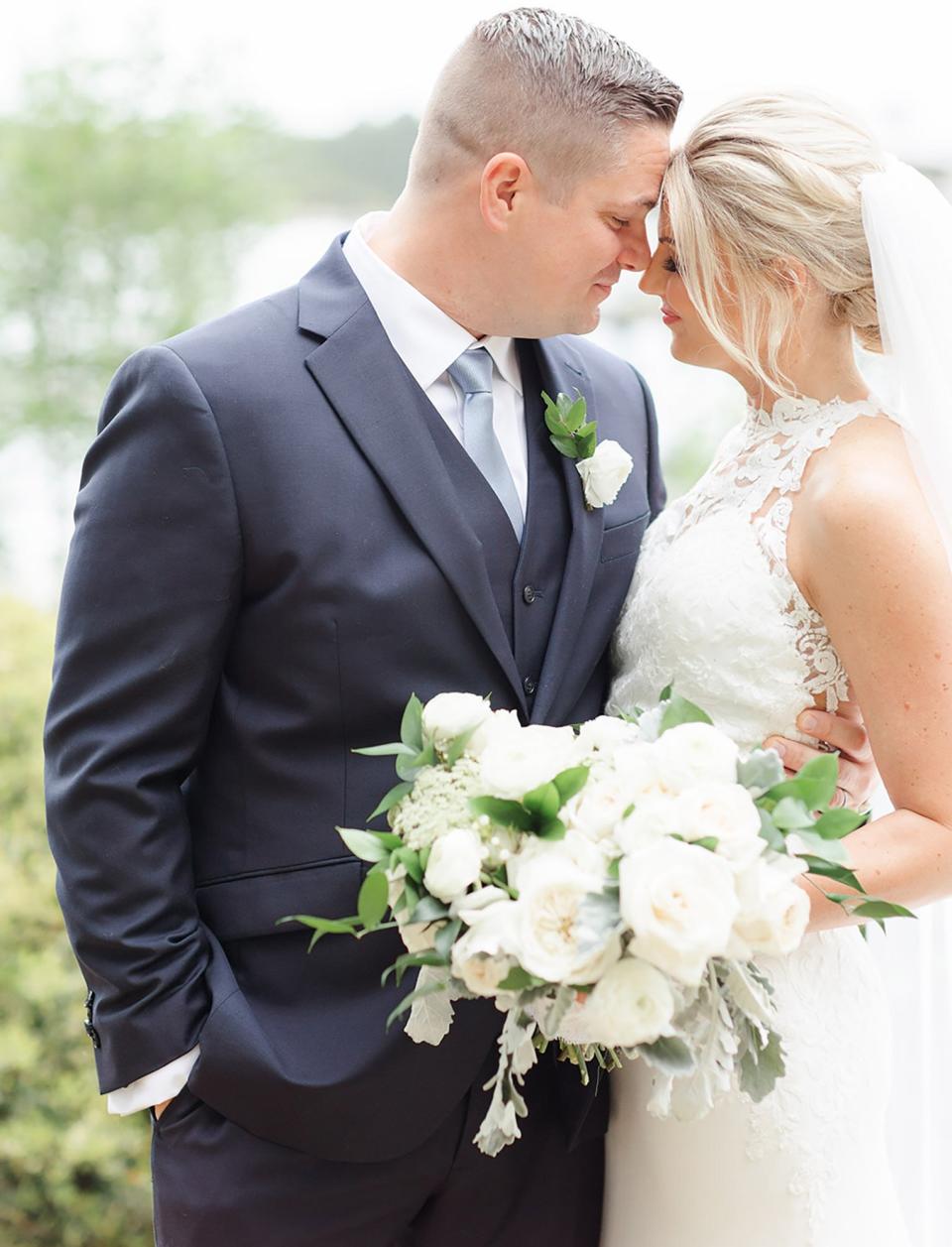Former Ms. South Carolina Forced to Carry Unviable Fetus for 7 Weeks: It 'Was Like a Dagger to the Heart'

Emma Lili Photography
When Jill and Matt Hartle heard about Roe v. Wade being overturned, Jill was 14 weeks pregnant with their first child.
"My husband walks out of the room and he is beet-red furious," says Jill, 35, from Charleston, South Carolina. "We said to each other, 'We cannot believe this is happening' — thinking of our daughter and her future."
Little did they know, it was the two of them who would be impacted by their state's restrictive abortion law just weeks later.
Jill, who was Ms. South Carolina in 2013, describes herself as a lifelong Republican and Christian. "I was raised in a very conservative family and have always considered myself aligned with the Republican party, but I have always been pro-choice," she tells PEOPLE. "We do come from a conservative Christian background, but we also come from a place of empathy and compassion and non-judgment."
She and Matt, 40, got married in April 2021 and found out Jill was pregnant in April 2022. At their 8-week scan, everything was normal. "We go to our first ultrasound and everything looks great," Jill says. The baby was given a due date of December 27.
At their 12-week scan, the baby's development was still on target. They found out they were having a girl.
But at the 18-week scan, they learned of abnormalities in the baby's heart. "The doctor said, 'Her heart is not what we want it to look like,' " the hair salon owner recalls. "I said, 'My best friend had a child with Hypoplastic Left Heart Syndrome.' And she said, 'That's what we're looking at.' "
"My stomach sank because I knew how bad that could be and I knew what it meant," Jill says.
RELATED: Women's Choices, Women's Voices
HLHS is a severe congenital cardiac condition in which the left side of the heart of the fetus is not developed. While cases vary in terns of severity, it is incurable and can be fatal without several surgeries at and after birth, and it often requires a heart transplant.
Several years before, Jill's best friend, Lacey, was pregnant when she learned her baby had HLHS. At that time, pregnancy could be terminated until 24 weeks, so Lacey was able to make the difficult decision to end her pregnancy within a few days of receiving the diagnosis.
Jill, though, was about to face weeks of turmoil.
That's because one month earlier, South Carolina had banned abortion after 6 weeks of gestation. (HLHS cannot be detected until 18 to 24 weeks.) There are exceptions to the ban for rape, incest or the life of the mother, but no exceptions for fetal anomalies.
Jill's ob-gyn sent her straight to the Medical University of South Carolina Health University Medical Center where a team of specialists, including a high-risk OB, palliative care nurse, genetics counselor and fetal cardiologist asked if termination was on the table. If so, MUSC said they would be unable to help.
The doctors advised Jill and Matt to wait four weeks for another scan to see the severity of the condition and whether additional complications existed.
Before the Roe reversal, it was not common practice to wait an entire month for another diagnostic appointment after HLHS was detected and the severity on the spectrum confirmed. Couples had the freedom of choice to decide what was best for them.
But Jill and Matt waited another month. The next round of tests, including an amniocentesis and echocardiogram, confirmed the severity of their baby's case of HLHS and an additional complication of aortic atresia.

Emma Lili Photography
It was time for Jill and Matt to think about the future. "The doctors just kept talking about the surgeries," says Jill. "They basically explained that every child with HLHS — no matter if it's the least severe case or the most severe case — will have to have three open-heart surgeries at a very young age. The first open-heart surgery happens the first week of life. The second open-heart surgery happens at six months old. And then there's a third open-heart surgery, and eventually, a wait for a transplant. And if they're lucky enough to get a heart and if their body accepts it, then every 10 years after that, they're back on the heart transplant list because hearts only last 10 to 15 years. So even best-case scenario was still a very grim outlook."
"We decided that the best thing for our particular case and our particular daughter, Ivy Grace, was to just give her the most peaceful possible way to heaven and to be healed and to be free and never feel a moment's pain."
They were lucky to have family and friends in the medical community to help them navigate the next steps, which included finding a state where they could terminate after 24 weeks. The hospital, they noted, was no help dealing with the difficult situation. "It was almost like, 'You have to schedule all this. You have to go and figure it all out.' "
Jill was able to locate a clinic in Washington, D.C., that would take her, but there was a two-week wait. And those weeks nearly broke Jill's heart. "Every time I felt her move was like a dagger to the heart," she says. "And the mental toll: I was grieving the loss of my child while still carrying her and also waiting to be taken care of so that I could start the healing process."
At 25 weeks, Jill was able to get the procedure. It was an ordeal. "I had to get on a plane after giving birth, having full-on contractions because my uterus was shrinking. The most excruciating thing I've ever done has been getting on an airplane to travel home the day after I delivered. All of these things are logistically insane."
"And I know for a fact that the place that I went to that had a two-week wait now has a six-week wait," she adds. This means that some women are not going to be able to go there because they are already too close to the gestation cut-off. "They can't wait that long."
Jill and Matt started the Ivy Grace Project to shed light on how abortion rights affect women dealing with fetal anomalies.
"My main goal is to bring awareness to the nuance of fetal anomalies," she says. "All you hear about in this conversation is rape, incest, protection of a mother's health if they're at risk. Well, there's no talk about fetal anomalies. No one even knows what a fetal anomaly is unless you've known someone who's had one and or have heard a testimony from a woman who's had one."
"But I want to be clear: There are a lot of people walking this earth with HLHS. There are a lot of mamas out there who have kids with HLHS. And I do not want to alienate them in any way. Those children, their stories are supposed to be written, they're supposed to be where they are. And that is their story. This just happens to be my experience and my story."

